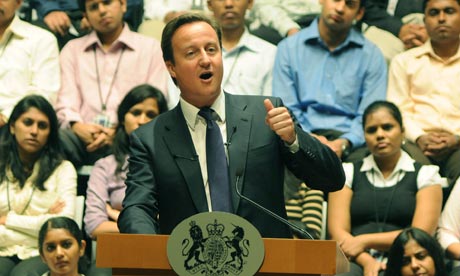So, George W. Bush's latest book, Decision Points, is out and sure enough, much controversy abounds! One of the main talking points (or decision points!) is Bush's claim that waterboarding resulted in vital information that prevented terrorist attacks upon Great Britain, and therefore saved British lives.
This has obviously caused enormous controversy, with many lefties (and a number of panicky conservatives) dismissing the claim, and stating that it doesn't really matter anyway as torture is completely unacceptable etc. Now one of the difficult things about this is that the word 'torture' gets thrown about alot. This is quite an emotive term, and is normally left undefined, which makes it impossible to have a proper debate about
If we give 'torture' a wide definition, and then declare 'torture = bad' then you end up with a ridiculous scenario where even giving a prisoner poor quality food is 'obscene' and 'abhorrent' and all the other emotive terms the left use to distract from arguments they always lose on the merits of the facts. In order to condemn 'all torture', we need a very precise definition that does not lead to absurdities like the above, otherwise even banging on the table in anger would be classified as "torturing the suspect using fear and aggression."
This new revelation by Bush is perfectly easy to believe, and is pretty obvious as well. One of the only three people to be waterboarded (by the way the left went on about it you would think we waterboarded all of Afghanistan) was the infamous right hand man to Osama Bin Laden - Khalid Sheik Mohammed - who eventually sang like a red robin, and gave away detailed information about potential terrorists attacks on Britain and the US. While the exact nature of this information is classified, it can be revealed that these include plans to attack Heathrow Airport, Big Ben and Canary Wharf. Such an attack would have caused unimaginable devastation, and all Brits should be thankful that we had someone like Bush in office who was prepared to make those difficult decisions that saved lives.
Now, we always have to look at costs and benefits to any action. While the ends do not necessarily justify the means (i.e something intrinsically evil cannot be approved to get a good final end) unpleasant acts that are not intrinsically evil are made more bearable by potential benefits. Waterboarding scumbags like Sheikh Mohammed are not intrinsically evil, because a) it is not torture, it is just water and b) Sheikh Mohammed is a direct and immediate threat to the lives of innocents.
Therefore the question is - what is more important, the lives of thousands of British citizens, or the comfort of the life of Khalid Sheikh Mohammed? With that in mind, I think the answer to the question of whether or not to waterboard terrorist scumbags like Sheikh Mohammed is clear - make sure that towel is wet, the water icy cold, and squeeze the terrorist lemon until the pips squeak!
Showing posts with label terrorism. Show all posts
Showing posts with label terrorism. Show all posts
Tuesday, 9 November 2010
Thursday, 29 July 2010
International Relations and "hurtful" remarks
David Cameron is currently on the next stage of his international tourm and has ruffled some feathers with his views on various issues. I don't agree with everything Cameron has said (describing Gaza as a prison camp was a little bit.....incorrect for my tastes!) but I do appreciate a leader being honest with what he believes. Brown never seemed to have an opinion on anything, so it is nice to hear actual opinions and policies from the Prime Minister.
Arguably his most controversial comments were when he stated that it was unacceptable for Pakistan to allow terrorist training camps to flourish within Pakistan, therefore promoting terrorism throughout the world. Now, as far as I am concerned, these comments are either right or wrong. Pakistan is either allowing terrorist training camps to flourish within its borders, and as a result should clamp down on it - or it is not allowing them to flourish, and therefore should refute Mr Cameron's remarks. The statement is either a truthful one, and must therefore be accepted, or it is false and must be refuted.
Yet, this question is not the one being asked, or answered at all in the resulting discussion about the comments. The discussion is less on whether or not the comments were right, but whether or not they were 'hurtful' or 'offensive'. Take Pakistan's High Commissioner who said that people in Pakistan were "really hurt" by Cameron's comments and called for him to 'make amends'.
Now, whether or not the remarks are 'hurtful' are irrelevant - the question should be whether or not they are true. Only on something small, like whether or not you enjoyed a meal, does one sacrifice truth for someone's feelings. But on an issue as large as international terrorism, feelings are irrelevant, the question is only one of truth. If Pakistan are indeed allowing terrorism to flourish, as appears to be the case, then Cameron is well within his rights and responsibilities to say so in strong terms to the Pakistani goevernment. It would be irresponsible not to.
The High Commissioner should be saying either "Yes we need to do more" or "No, Mr Cameron's comments are innacurate, we are doing enough etec." But to say they are hurtful really misses the point, but it touches on a side of politics that has tainted a lot of political debate. It is really a left-wing influence that has tainted the mainstream of thought and discussion.
 The influence is one of an essentially relativistic brand. For many on the left, a thing does not have an intrinsic, objective moral value - it is entirely subjective. Therefore, many issues come down to either intentions or feelings, not right or wrong. So often on political issues, you hear about 'compassion' 'hurtfulness', 'understanding' etc instead of getting things done, and whether measure are right or wrong, working or failing, true or false. This is because it is the land of the subjective intention that the left work in.
The influence is one of an essentially relativistic brand. For many on the left, a thing does not have an intrinsic, objective moral value - it is entirely subjective. Therefore, many issues come down to either intentions or feelings, not right or wrong. So often on political issues, you hear about 'compassion' 'hurtfulness', 'understanding' etc instead of getting things done, and whether measure are right or wrong, working or failing, true or false. This is because it is the land of the subjective intention that the left work in.From this understanding of truth, Cameron hurt people's feelings - therefore he shouldn't have said what he said. However, for those of us in America and Britain who want to stop terrorist attacks, the real question is "Was David Cameron right?" - the answer is not yet conclusive, but it is that question that is the judge of the rightness of his comments, not whether or not it offended or 'hurt' people.
As a result, if David Cameron does believe that Pakistan is not doing enough in its responsibilities, then it is his duty to say so in the strongest terms - and he should be commended, not criticised, for doing so.
Labels:
David Cameron,
Gaza camps,
Gordon Brown,
Pakistan,
terrorism
Subscribe to:
Posts (Atom)

